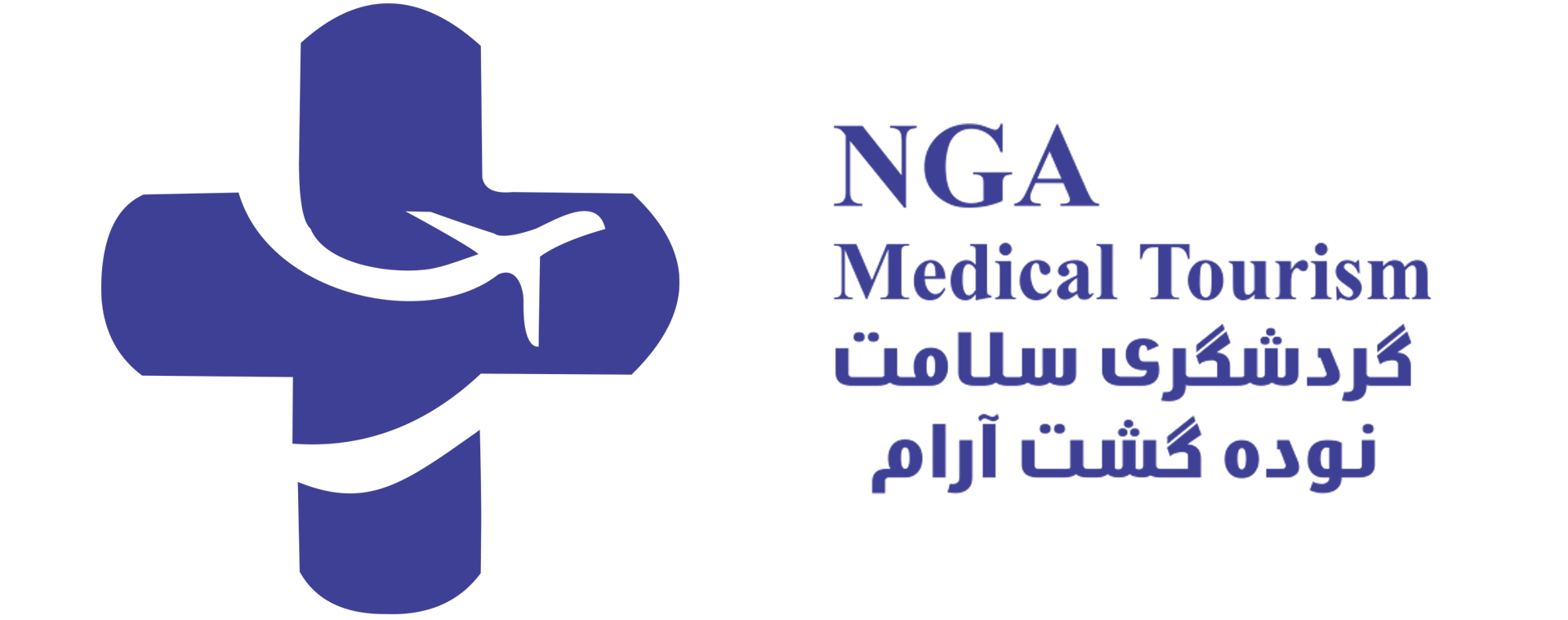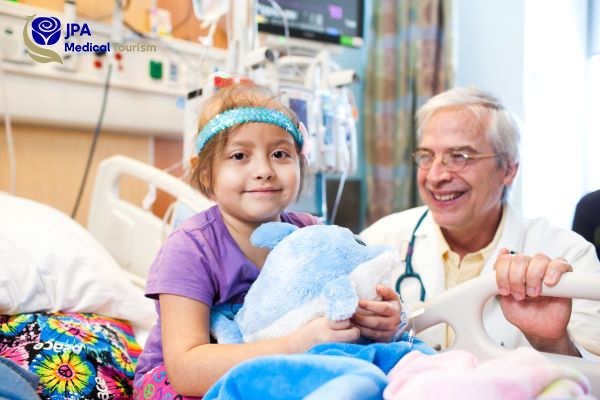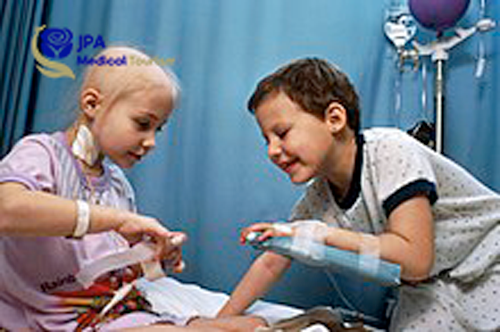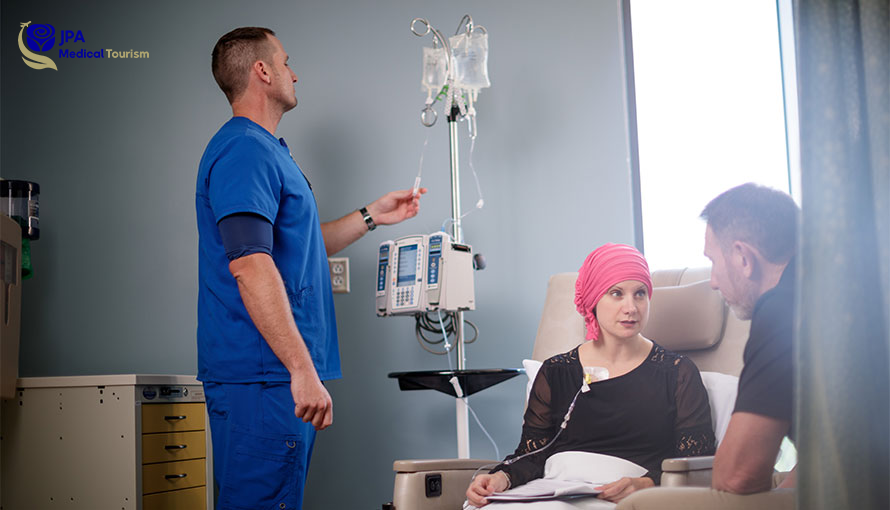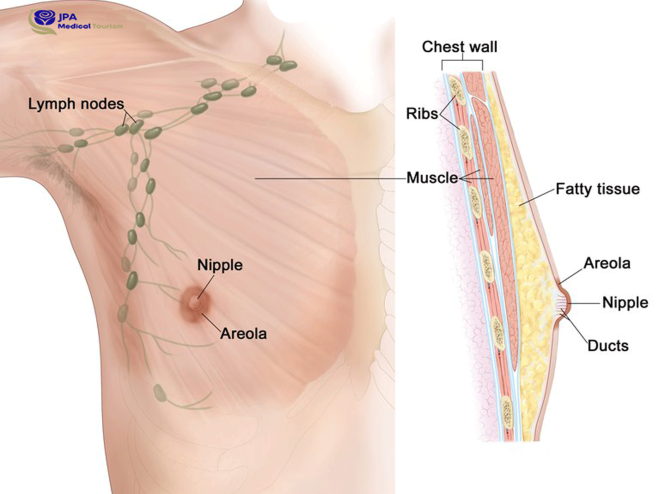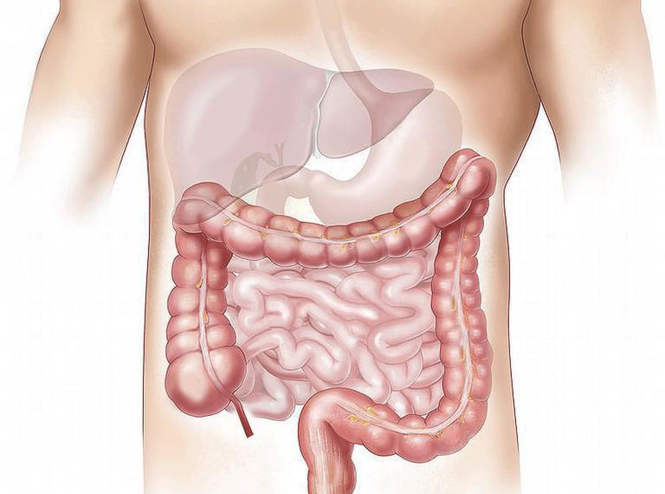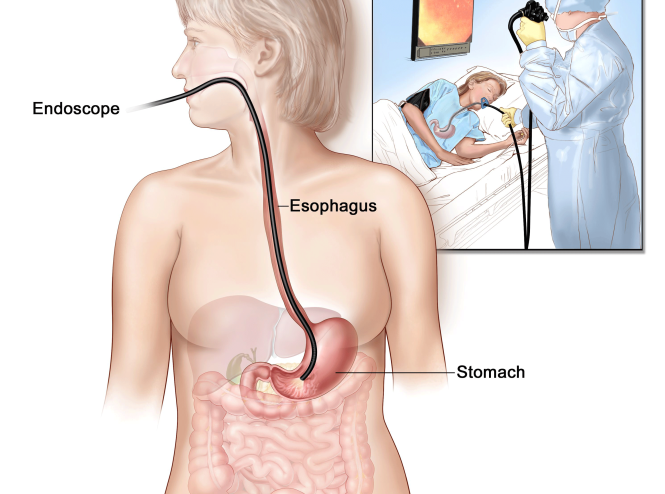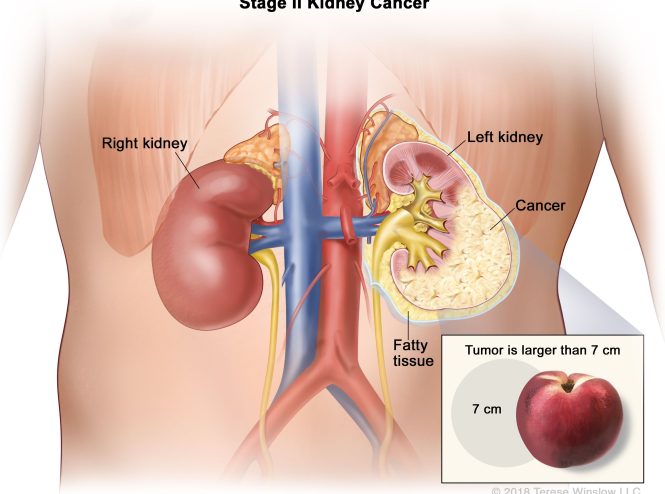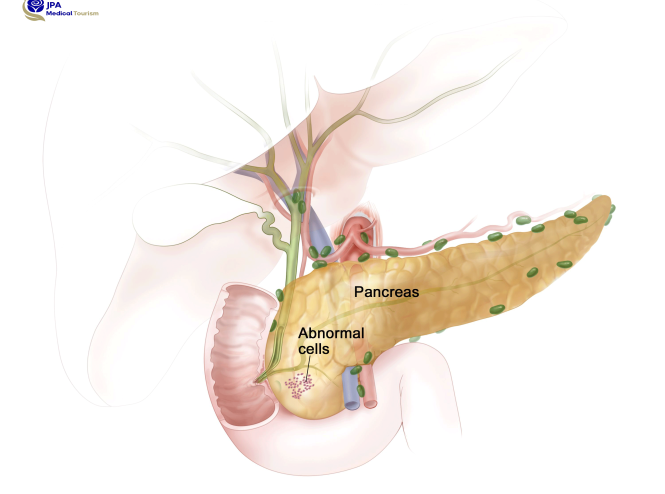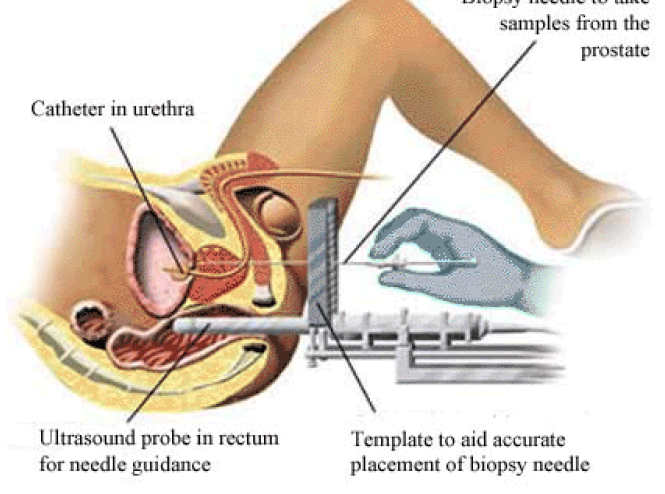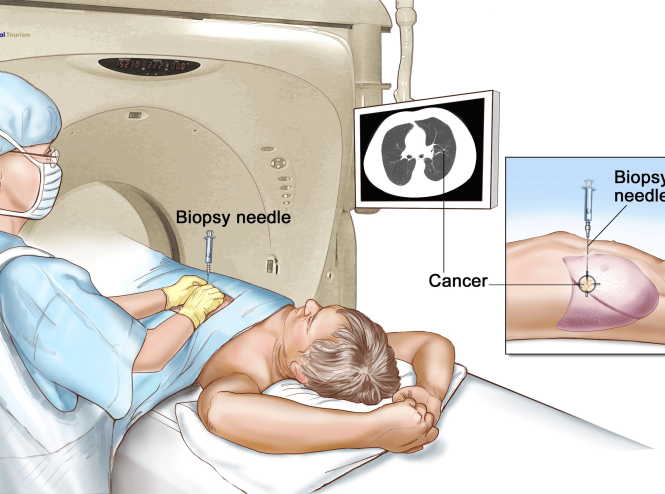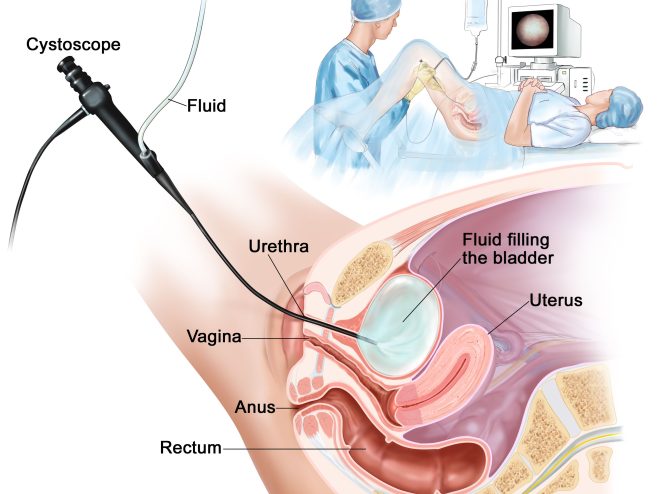Side Effects
Of
Chemotherapy
Best Hospital
We Introduce Best Hospital for Chemotherapy
Best Doctors
We Introduce Best Doctors for Chemotherapy
Best Price
We Try to introduce best Services with Regular Price
Why choose Iran for treatment and medical procedures?
• Low costs
• Board licensed surgeons
• Quality health care
• Less waiting time
• Accredited hospital
• Personal service
• Language capability
• Ease of medical visa
• Treatment with advanced technology
• Strong presence in advanced healthcare e.g. Transplantation - high success rate in the operation.
Active clinics for international patients:
Shahid Dastani Clinic, Hematology, Oncology and Stem Cell Transplant Clinic, Nuclear Medicine Clinic and Special Clinic.
Clinics: urology, nephrology, lung, general surgery, endocrinology, gastroenterology, gynecology, midwifery, perinatal, infertility, maxillofacial surgery, genetics, dermatology, orthopedics, neurosurgery, heart, heart surgery, vascular surgery, neurology, rheumatology, ear and Otorhinolaryngology, dentistry, infectious, speech therapy, pain, nutrition and diet therapy, anesthesia, celiac disease, liver cirrhosis, Behcet, eye, psychiatry, men’s health
Paraclinical departments: clinical laboratory, pathology, imaging and pharmacy
Clinics: EMG-EEG, bronchoscopy, spirometry, bone densitometry, nuclear medicine, dialysis, physiotherapy, endoscopy, echocardiography, exercise test, pain control, rehabilitation and sports medicine.
The response to cancer treatment can be described in the following ways:
The full answer: There are no obvious signs of a tumor or cancer, and there is no evidence of this disease. If the disease is completely cured, treatment can be continued for one or two cycles after this step to increase the likelihood of targeting all microscopic disease.
Relative response: The cancer has decreased significantly, but the disease may remain. The tumor indicator may have failed, but there is still evidence of disease. If the tumor is reduced in size, but not completely treated, chemotherapy is continued until the tumor begins to grow.
stable disease: deficiency or growth of cancer; The amount of disease remains unchanged and tumor signs do not show much change.
What are the signs of the body’s response to chemotherapy?
What is a tumor unresponsive to chemotherapy?
Why does the body not respond to chemotherapy?
What are the signs of success of leukemia and chemotherapy for the lung?
The question many patients undergoing chemotherapy are: What are the symptoms of chemotherapy? Or what are the signs of the body not responding to chemotherapy?
Everyone feels fear and anxiety when hearing the name of cancer, but the truth is that if you treat the cancer in time, the likelihood of successful treatment is very high.
Fortunately, many medical centers in Iran have succeeded in treating cancerous tumors with modern methods.
The most equipped hospitals and doctors who specialize in treating this disease in Iran are ready to serve you.
Read more: Symptoms of liver trasplant in recent days
Read more: How long does a patient with metastatic lung cancer ?
Symptoms of the body’s response to chemotherapy
Chemotherapy is a very powerful method that can destroy cancer cells. When a person undergoes chemotherapy, their body’s response to the chemotherapy must be analyzed. The methods used to measure responses are similar to those used in diagnosing cancer.
A doctor can perform a physical exam to feel for a lump or mass. A person’s tumor or lymph nodes can be examined with a physical exam.
X-rays or CT scans can show certain types of carcinoid tumors.
Blood tests may be done, for example, tests that can measure organ function.
Clinical trials that include tumor markers may also be conducted.
No matter what type of test is performed, the test is repeated at regular intervals so that doctors can compare the results of the new test with previous results.
Read more: Chemotherapy in Iran
Read more: Complications of Cancer Chemotherapy
Read more: Treating prostate cancer that has metastasized to the bone

New tumors are still forming.
Cancer spreads to new areas.
New or more severe symptoms appear.
If chemotherapy is not effective in the long term or does not relieve symptoms, you should look for other options.
Factors that help in treating a cancer patient:
optimism
Playing sports
Maintain an ideal weight.
Start changing your lifestyle.
Eat a whole food diet.
Prepare for success
Try to get out of the atmosphere of despair.
More information: Bone cancer treatment in Iran
More information: Thyroid cancer treatment in Iran
More information: Breast cancer treatment
More information: How long does a lung cancer patient live?
More information: Liver cancer treatment in Iran
More information: Stomach cancer treatment in Iran
What is chemotherapy and what is it used for?
Chemotherapy is the use of drugs to treat malignant tumors, that is, cancer. The appointment of chemotherapy is preceded by a comprehensive examination of the organism, assessment of the state of its functions and reserve capabilities. If you have any concomitant diseases or are no longer young, this is not a reason to refuse chemotherapy. The doctor takes into account all the features of your body.
Depending on the type and stage of cancer, chemotherapy may be used to:
Complete destruction of the tumor.
Slow the process of tumor growth and eliminate cancer cells that can spread to other parts of the body:
Reducing the size of the tumor and creating conditions for its surgical removal;
Destroy the remaining cancer cells in the body after surgery.
Chemotherapy is usually used in combination with surgery and/or radiation therapy. In some patients, it is performed before surgery to reduce the size of the tumor, and in others – after surgery or radiotherapy to destroy the remaining malignant cells.
In some cases, chemotherapy is the only treatment option.
Mechanism of action of anti-tumor drugs
Anticancer drugs can destroy cancer cells, and prevent their growth and division by acting on cancer cell membranes or destroying their internal structure. Some medicines can increase the body’s defenses (antitumor immunity). Currently, several anticancer drugs (multiple chemotherapy) are often prescribed simultaneously. It has been shown that, in most cases, specially selected combinations of drugs are more effective.
Some chemotherapy drugs are able to enhance the antitumor effect of radiotherapy or, conversely, better destroy irradiated cancer cells. Therefore, in a number of cancers, these two methods are used together.
Your oncologist determines which drugs or combinations of drugs you need. This decision depends on the type and location of the tumor, how far it has spread, and your overall health.
Where is chemotherapy performed?
Chemotherapy is performed only by an experienced oncologist who has sufficient experience in this treatment. Treatment can be carried out in a specialized institution (oncological clinic) for inpatient or outpatient settings. The place for the test will be decided by your physician based on the characteristics of your disease, general treatment plan, type of chemotherapy and medications used. Sometimes, under the strict supervision of a doctor, you can take a pill.
If a decision is made to conduct treatment at home, then it is recommended to conduct the first session of chemotherapy in a medical institution: this will allow the doctor to find out the effect of the drug himself and take the necessary measures, if any. In the future, you will have to periodically visit the clinic or dispensary so that the doctor can monitor the treatment and, if necessary, make changes to increase its effectiveness.
How is chemotherapy done?
The course of chemotherapy is carried out in one or more ways:
Peripheral vein: Medicines are given with a very thin needle (into a vein in the arm).
Into the central vein through a catheter (a thin tube that is inserted into a large vein, usually under the collarbone, and left there for a certain period of time).
Into the artery penetrate directly into the tumor.
Orally, that is, orally: take tablets, capsules.
Injections into a muscle, under the skin, or directly into a tumor.
Locally: The drug is applied to the skin in the form of ointments or solutions.
Anticancer drugs may also be injected into the spinal fluid, abdominal cavity, pleural cavity, and bladder.
In most cases, chemotherapy drugs are given intravenously. Sometimes anticancer drugs are injected through a catheter into a vein or artery over several days. In this case, a special pump is used to control the amount of medication taken during treatment.
Feeling during chemotherapy
Usually, direct use of anticancer drugs does not cause any special sensations. Side effects (nausea, deterioration of the general condition, hair loss, etc.) develop, as a rule, several hours or days after the start of chemotherapy. Sometimes in the next days after the introduction of chemotherapy drugs, “flu-like symptoms” may appear: muscle aches, headache, slight fever, poor appetite. If these symptoms appear, they usually last for several days. It can be caused by infection or cancer. Therefore, if you have such symptoms, be sure to tell your doctor about them.
Duration of chemotherapy
The duration of chemotherapy depends on the type of cancer, the purpose of treatment, the medications used, and how your body responds to them.
The duration of the course of chemotherapy must be determined by the attending physician. Anticancer drugs can be taken daily, weekly, or monthly. Chemotherapy is usually given for 1-5 days, with a 2-3 week break to allow your body to recover. Sometimes courses of chemotherapy are carried out in order to prevent recurrence of the tumor for 1-1.5 years.
It is very important to strictly observe the intervals between cycles of chemotherapy and to take all prescribed medications, even if you feel tired or tired. Otherwise, anticancer drugs will not give the desired effect.
In some cases, based on the results of a blood test, treatment may be temporarily suspended. However, only your doctor can make this decision. If you miss a treatment session or do not take the required dose of medication, be sure to tell your doctor – he will tell you what to do in this case.
Is it possible to take other medicines during a course of chemotherapy
Some drugs can make anticancer drugs work less well or increase their side effects. Therefore, before undergoing a course of chemotherapy, it is necessary to tell the doctor all the medicines taken (including those bought without a prescription). Your doctor will tell you if it’s appropriate to continue taking them while you are receiving chemotherapy. Likewise, you should discuss with your doctor the appropriateness of taking nutritional and vitamin supplements, as no one has proven their effectiveness in cancer patients.
“Folk remedies” for the treatment of tumor
The vast majority of these methods have not been rigorously clinically tested. Its “effectiveness”, which some therapists talk about, is due to some psychotherapeutic effect, and less often – the result of antitumor therapy, which was carried out before resorting to these “specialists”. Moreover, the use of such “remedies” not only delays reaching a doctor in time, but can also cause significant harm to health, which is sometimes irreparable.
How is your condition and the effectiveness of chemotherapy controlled?
Your doctor monitors your condition and the effectiveness of chemotherapy. The effectiveness of chemotherapy is determined by reducing the size of the tumor, for which the doctor periodically prescribes appropriate studies (X-rays, ultrasound, etc.). Inadequate efficacy of treatment may result in a change in treatment regimen (second-line chemotherapy). In addition, the doctor will check your blood condition and conduct a number of other necessary studies in order to monitor your general condition and tolerance to chemotherapy. If necessary, he will prescribe general strengthening therapy or drugs that reduce the side effects of chemotherapy.
Nutrition during chemotherapy
Good nutrition is of great importance during chemotherapy. It should be high in calories and contain a sufficient amount of proteins, carbohydrates, fats, vitamins and minerals. Food should be varied (dairy products, meat, fish, vegetables, fruits, bread, etc.). This is necessary to ensure that your body has enough energy to fight cancer and infection and to speed up the recovery of normal tissue. It is very important to prevent weight loss during treatment.
During chemotherapy, appetite decreases significantly or completely disappears. Sometimes a feeling of nausea joins these phenomena. All this you need to overcome and make your conscious efforts to fight the disease.
If you do not have an appetite, you can follow the following recommendations:
Eat a little food and when you feel like it, regardless of the daily routine.
Introduce new foods into your diet and always have a small amount of the foods you like.
Talk to your doctor about the possibility and advisability of consuming a small amount of alcohol (beer, dry wine) before meals.
Try to create conditions during meals that improve your mood (setting the table, relaxing music, chatting with friends and relatives, watching TV, etc.).
Take a walk in the fresh air before eating, if your doctor has not prevented you from doing so.
Between meals, drink kefir, yogurt and juices.
With a tendency to drink large amounts of liquids, try to increase the calorie content of drinks by adding honey, yogurt and milk powder to them.
If you feel sick during chemotherapy, you can reduce it on your own (see the section “How to relieve nausea on your own”).
Side effects of chemotherapy
Unfortunately, the anti-cancer drugs currently in use in one form or another cause side effects. Basically, these side effects develop due to damage to part of the healthy cells of the body. This is due to the fact that anticancer drugs have a detrimental effect mainly on rapidly dividing cells of both tumors and normal tissues. However, healthy body cells are more resistant to the action of chemotherapy drugs and retain the ability to recover. Therefore, its harm is usually temporary. Where
The speed of recovery depends on a number of factors, including the general condition of your body, and the types of medications used.
During chemotherapy, healthy, rapidly growing cells are often affected: blood cells that form in the bone marrow, cells of the gastrointestinal tract, oral mucosa, cells of the reproductive system and hair follicles.
The most common side effects that occur under the influence of chemotherapy include a temporary decrease in the number of white and red blood cells (anemia, leukopenia), nausea, vomiting, hair loss, fatigue. Some cancer drugs can damage cells of the heart, kidneys, bladder, lungs, and nervous system.
In most cases, after a course of chemotherapy is over, healthy cells are updated fairly quickly. However, some effects last longer (months or even years). Sometimes they stay for life.

This occurs when chemotherapy damages the heart, lungs, kidneys, or reproductive organs.
Currently, doctors have learned how to prevent many side effects or significantly reduce their frequency and strength. For this purpose, special drugs and modes of administration of chemotherapy drugs have been developed.
You must clearly understand that the unpleasant side effects caused by chemotherapy are justified, given their ability to destroy the tumor.
What side effects you may experience during the course of chemotherapy, how long they last and whether they can be reduced, you can find out from your doctor before starting the course.
The absence or mild severity of chemotherapy side effects does not indicate an insufficient effect of the treatment. Your body is different, plus different medications have different effects.
Vomiting and nausea
Some cancer medicines can cause nausea and vomiting. These symptoms may appear immediately after taking the anti-cancer drug or after a few hours. The main reason for this phenomenon is the effect of the drug on the stomach wall and the middle of the brain, which controls the gag reflex. Some people do not experience nausea or vomiting during chemotherapy. Some patients experience mild nausea during treatment. If you get severe nausea and vomiting, be sure to tell your doctor or nurse. The doctor will prescribe special medicines (antiemetics) that reduce the severity of this side effect. In cases where anticancer drugs are prescribed, which always cause severe nausea, antiemetics are prescribed before taking the drugs and during the entire subsequent treatment.
How to reduce nausea on your own
You can alleviate your condition if you follow some rules:
If chemotherapy causes you to feel sick, try not to eat at least two hours before taking the medication.
You need to eat often, but in small portions.
Eat slowly, and chew food carefully.
Eat food cold or at room temperature.
Do not eat sweets, fried and fatty foods.
Do not drink liquids with meals (it is preferable to take liquid one hour before meals).
Drink cold, unsweetened juices (apple, grape), mineral water without gas.
Rest at least two hours after eating, and sit in a chair.
Try to avoid bad odors
Do not cook food during chemotherapy
While eating, listen to music, watch TV
If you feel nauseous, breathe deeply and slowly
hair loss
Hair loss (alopecia) is a common side effect of chemotherapy. The frequency and likelihood of this phenomenon depends largely on the anticancer drug used. In most cases, hair grows back after chemotherapy is completed. Your doctor can give you more detailed information about the effect of medications on the condition of the hair.
Hair loss usually begins after several cycles of chemotherapy.
If you are receiving chemical treatment, which sometimes leads to hair loss, when caring for your hair, use a mild shampoo, do not dye your hair, comb it with a soft brush, and dry it with a hair dryer on low heat.
If the medication used always causes hair loss, it is better to cut it or shave it completely and not worry about hair loss every day. If you feel uncomfortable, you can wear a wig, hat, etc.
Side effects on the skin and nails
During chemotherapy, skin redness, itching, peeling, and dryness may occur. Redness and peeling of the skin are often observed on the palms of the hands and the soles of the feet. In addition, nails can sometimes change color and become brittle. These skin changes usually disappear within a few months after chemotherapy ends.
To avoid drying out the skin, take a hygienic bath or wipe it with a soft sponge. Do not rub your skin with a towel. Do not take long hot baths.
Wipe the skin with blotting movements. While the skin is still damp, apply a neutral cream or lotion that does not contain alcohol or perfume.
If you suffer from acne, use antibacterial soaps and creams. Wear gloves when doing household chores where detergents may come into contact with skin or when there is a high risk of skin injury.
Side effects on the blood
The side effect of antitumor drugs on the blood is due to their toxic effect on the bone marrow that produces blood cells (red blood cells, white blood cells, and platelets).
Red blood cells (RBCs) are responsible for delivering oxygen to the organs and tissues of the body.
White blood cells (leukocytes) provide the body’s defense against infection.
Platelets turn the blood into clots at the site of tissue damage and thus help stop the bleeding.
Depending on the bone marrow buds damaged by chemotherapy, a deficiency of some blood cells develops.
The main side effects and complications of the effect of anticancer drugs on the blood are:
general weakness due to anemia (low number of red blood cells),
Bleeding (low platelets).
Infections (low white blood cells).
general weakness
It develops due to the fact that the body does not receive enough oxygen due to the lack of red blood cells in the blood. For the same reason, excessive fatigue, rapid breathing, nausea, cold hands and feet may occur.
If you develop these symptoms, be sure to tell your doctor. He will perform a detailed blood test and, if necessary, prescribe a red blood cell transfusion for the donor or drugs that enhance the formation of his own red blood cells.
After completing the treatment, the number of red blood cells will gradually recover to the required level, but during this period you should rest more, temporarily limit vigorous activity, and ensure a balanced diet.
blood clotting disorder
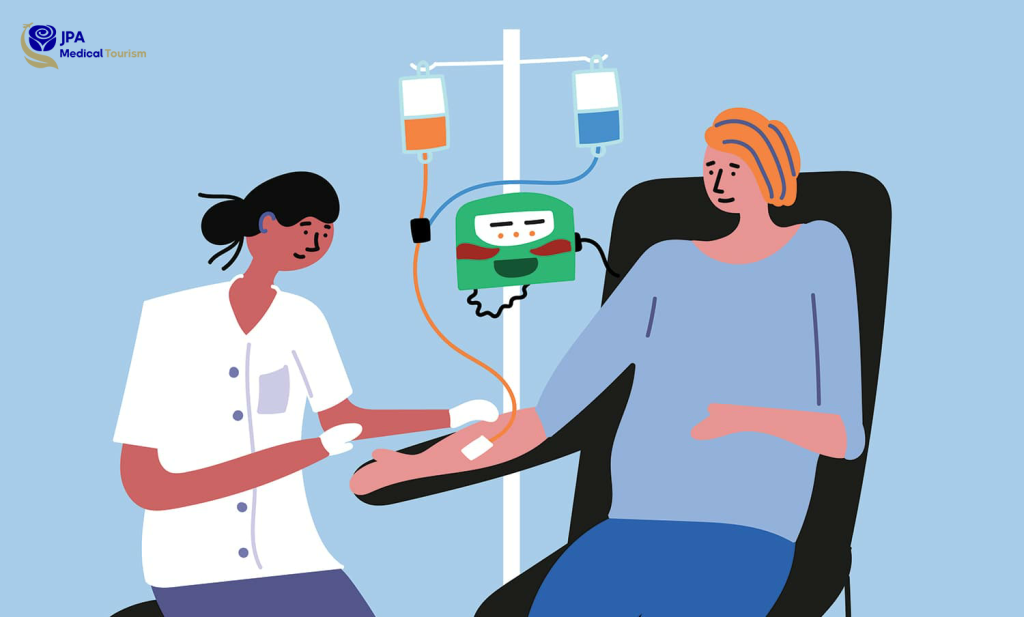
Most anticancer medicines reduce blood clotting. An insufficient number of platelets can lead to bleeding and bruising, which can occur even after minor trauma. During chemotherapy, the number of these important blood cells is constantly monitored. If their level is much lower than normal, then special drugs will be prescribed that promote the formation of new platelets, or donor platelets will be intravenously transfused.
Be sure to tell your doctor or nurse if:
Small red dots or bruises appear on the skin,
red or pink urine
black or bloody stools
bleeding gums
There is nosebleeds.
infectious complications
During chemotherapy, immunity is often weakened and the body’s sensitivity to infections increases. The lack of white blood cells in the blood can lead to the fact that even weakened pathogenic microbes can cause infection in any organ (skin, oral organs, lungs, rectum, bladder, genitals). Therefore, you should carefully observe personal hygiene and pay attention to any signs of infection.
In order to prevent the development of infectious complications, some rules of personal hygiene and behavior during chemotherapy should be followed:
Wash your hands several times a day, always before meals, before and after toilet procedures.
The rules of personal hygiene should be observed seriously, but very carefully after each bowel movement.
When doing homework, be careful, and try not to get hurt. For this purpose, you can use protective gloves.
Do not pop blisters, cut or peel off nails.
If the skin is damaged, immediately wash the wound with warm water and soap and sterilize it (but not with alcohol tincture of iodine).
Stay away from patients with colds, viral infections, and children who have recently been vaccinated against measles, polio, mumps and rubella.
Avoid crowds (shops, public transport).
Unfortunately, even by following all the above tips, it is not always possible to avoid infection. Therefore, you need to know its main symptoms, and if they appear, immediately consult a doctor.
Signs of infection:
increased body temperature to 37.5 ° C and above;
cold symptoms (cough, runny nose, sore throat);
increased sweating
bowel disorder
Burning sensation when urinating.
Unusual vaginal discharge and itching.
If you are receiving anticancer medicines through a venous or arterial catheter, monitor it carefully. If you feel any discomfort, pain, or redness at the insertion site, tell your nurse or doctor right away.
Infectious complications of chemotherapy should only be treated by a doctor. Do not take antibiotics or other medications on your own.
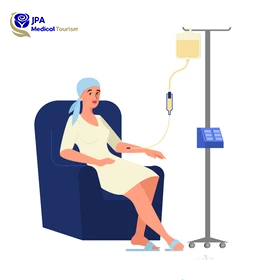
Oral Care Features
Anticancer drugs can cause inflammation, dryness, swelling, and bleeding of the gums in the mouth. With prolonged use of chemotherapy, multiple caries may develop. There are many microorganisms in the oral cavity, the mucous membrane is often infected, so local infections easily occur during chemotherapy.
If you follow some rules, you may avoid or reduce the possibility of oral problems.
Treating or removing diseased teeth before undergoing chemotherapy.
Buy a new soft toothbrush.
Wash your toothbrush well after use and store it in a dry place.
Brush your teeth after every meal.
Use soft, non-irritating mucus pastes.
If your lips are dry, treat them with a neutral lip balm or an oil-based solution of vitamin A.
Chemotherapy for Breast Cancer in Iran
The first and most effective way to treat cancer is surgery. Like other types of cancer, breast cancer can be treated with chemotherapy. Chemotherapy is one of the most common and effective cancer treatments in Iran. Chemotherapy may be effective for all types of cancer, including breast cancer. If there is a risk of recurrence or spread of tumor and metastasis, chemotherapy should be done after surgery. Often, for the treatment of breast cancer, depending on the stage of diagnosis and treatment, the amount and number of chemotherapy sessions are different, but in routine, most cases of breast cancer are shown to the affected person very late, and the patient when He was in the high grade of the disease, he goes to the doctor, so he has to undergo several sessions of chemotherapy after the surgery. Chemotherapy is sometimes given before surgery in patients with large breast tumors to shrink the tumor enough to make it easier to remove with a lumpectomy. In patients whose cancer has already spread to other parts of the body, chemotherapy can be used to reduce the symptoms the cancer is causing.
There are other types of breast cancer treatments such as hormone therapy, radiotherapy and targeted therapy, each of which has its own advantages and disadvantages. If you are suffering from breast cancer and you intend to have an effective treatment at an affordable price, contact and call the team of Jahan Farah Aram for free consultation and free price of mastectomy in Iran or other types of breast cancer treatment. Our medical consultants will contact you as soon as possible to provide you with all the information you need.
Contact us for more information on diagnosis, treatment and free consultation for breast cancer
Aram World Health Tourism Team, in addition to free services such as accommodation, translator from the moment of arrival in Iran, health insurance, 24-hour support, etc., has specialized and sub-specialized inpatient departments, special departments, clinics, departments Paraclinics and clinics are well equipped to provide quality and special services for respected patients.
Specialized and subspecialized departments of the center: operating room, orthopedic surgery, general surgery, rheumatology, internal neurology, endocrinology, digestion, blood and hematology, bone marrow transplantation, gynecology and obstetrics, neonates, infertility, neurosurgery, cardiology, surgery Cardiology, nephrology, urology, kidney transplant, maxillofacial surgery, diabetic foot department, lip kit, emergency and hope departments.
Special departments of ICU: Emergency – General ICU – Neurosurgery ICU – Internal ICU – Open heart surgery ICU – NICU – CCU – Lab kit.
Active operating rooms: urology and cystoscopy operating room, orthopedic operating room, general operating room, neurosurgery operating room, maxillofacial surgery operating room, vascular surgery operating room, open heart surgery operating room, lung and thoracic surgery operating room.
Cancer Treatment in Iran
The most common cancer treatment in Iran is chemotherapy, but ...
Colon Cancer Treatment in Iran
The treatments for colorectal cancer usually involve surgery to remove the cancerous tumor
Stomach Cancer Treatment in Iran
The most common types of stomach cancer treatment are surgery ,chemotherapy...
Kidney Cancer Treatment in Iran
Kidney cancer is usually treated with surgery, targeted therapy, immunotherapy ...
Pancreatic Cancer Treatment in Iran
Pancreatic cancer treatments are surgery, chemotherapy, or a combination of them
prostate surgery in Iran
The most effective cancer treatments are surgery and localized treatments
Lung Cancer Treatment in Iran
Lung cancer can be treated with surgery, chemotherapy, radiation therapy, targeted therapy ...
Bladder Cancer Treatment in Iran
Bladder cancer is usually treated using surgery, Chemotherapy, radiation, or immunotherapy.
Contract party with child-friendly medical centers
- The first successful heart transplant center in Iran
- The first bone marrow transplant center in Iran
- The first kidney transplant center in Tehran
- The first center to perform CT Scan in Iran
- The first center for video capsule endoscopy in Iran
- Referral center for the treatment of blood and oncology diseases and the treatment of blood cancers with bone marrow transplantation
- A reputable center for fellowship training in bone marrow transplantation, hematology and oncology in the country
- Establishing non-relative stem cell bank (connected to world stem cell bank)
- Scientific pole of nuclear medicine of the country
- Cancer treatment referral center with radiopharmaceuticals
- The only training center approved by the International Atomic Energy Agency
- Iran nuclear medicine association center
- Center equipped to treat digestive and liver diseases
- The only center performing the POEM technique in the treatment of gastrointestinal diseases in the country
- Superspecialized center for the treatment of gastrointestinal problems, including advanced diagnostic and therapeutic ERCP, with the technique of combining two technical methods, “endoscopy” and “fluoroscopy”.
- One of the world’s most prestigious centers in the field of maxillofacial surgery and the use of 3D printers
- The only fetal laser surgery treatment center in the Middle East
- A reputable center in the treatment of female infertility and IVF in the country
- The scientific hub of rheumatology treatment in the country
- Specialized vascular angiography services in the treatment of diabetic foot
- Orthopedic subspecialty services (knee joint replacement, spinal correction surgeries for children in the country)
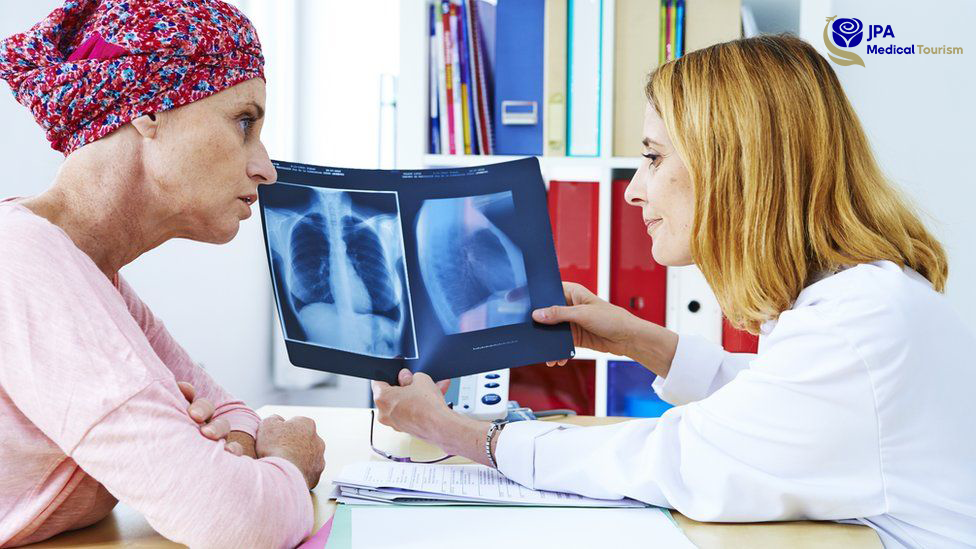
Why jahan pakhsh aram in iran?
- Low cost
- Board Certified Surgeons
- Quality Health Care
- Less Waiting Time
- Accredited Hospital
- Personalized Services
- Language Capability
- Ease of Medical Visa Facilitation
- Advance Technology Treatment
- Strong presence in advanced healthcare e.g. Organ Transplant – High success rate in operations.
